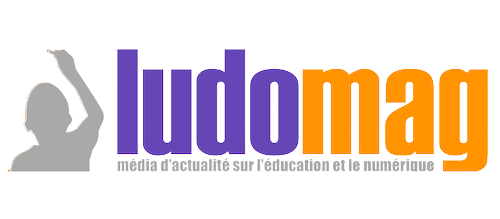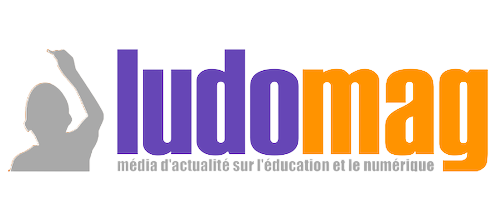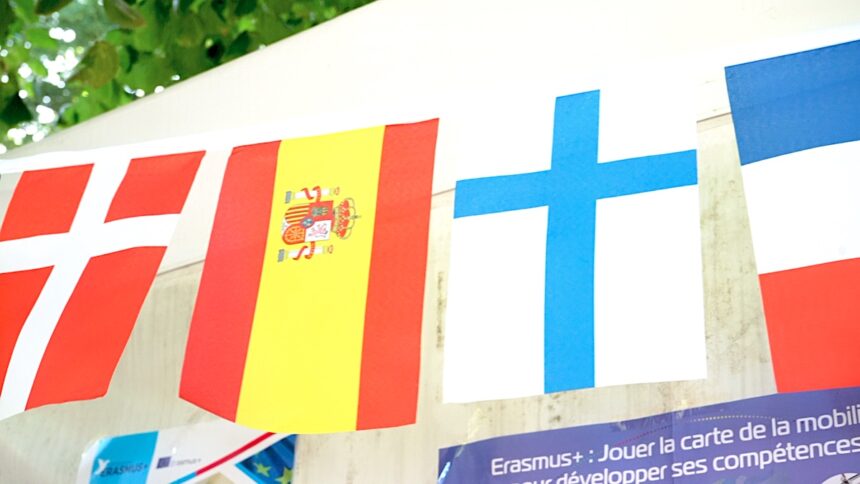The Erasmus+ France / Education & Training Agency has announced its awardees for the European Language Label (ELL) for the 2024 edition. The goal: to highlight particularly innovative Erasmus+ projects in language learning.
Created in 1998 by the European Commission, the ELL rewards innovative initiatives that have fostered multilingualism or implemented actions aimed at promoting language teaching in Europe.
The French winners of the 2024 ELL are:
- In the Adult Education category – The project « TEAPOT – Tool for Education with Artistic Perception for open Transmission » led by English Com’Eddy Theatre (Bordeaux, Nouvelle-Aquitaine). Coordinated by a language center in Bordeaux, this partnership project sought to rethink pedagogical approaches by integrating art into the teaching of English through theatre. It brought together four distinct organizations: the University of Zadar (Croatia), Athens Lifelong Learning Institute (Greece), and Balamo’s Teatro Association in Ferrara (Italy). The project aimed to provide learners with fewer opportunities (migrants and disadvantaged populations) the chance to access education in their host country through theatrical culture. These training workshops have already been adopted by one of the partners, illustrating the project’s sustainability.
- In the School Education category – « KAMILALA – A Creative Project for Social Inclusion through Openness to Languages and Cultures » led by the association D’une Langue À L’autre (DULALA – Montreuil, Île-de-France). Since 2014, this association has organized an annual multilingual Kamishibai contest, a Japanese storytelling genre akin to traveling theater, with participants of all ages. Through this Erasmus+ project, the contest has expanded since 2018 to other regions thanks to educational stakeholders brought together by the KAMILALA network, including the University of Aveiro, Aristotle University of Thessaloniki, and the Autonomous Region of the Aosta Valley. This project stands out for its originality, scale, and results. It helps foster social cohesion, with the aim of ensuring success for all.
- In the Higher Education category – « DIAL4U – Digital Pedagogy to Develop Autonomy, Mediate, and Certify Lifewide and Lifelong Language Learning for (European) Universities » led by the University of Lille (Hauts-de-France). In partnership with seven other university structures (in Germany, Spain, Lithuania, Poland, Portugal, Romania, and Sweden), this project aimed to develop online pedagogical tools to promote language learning « beyond the walls » of classrooms, through both formal and informal educational experiences. Among the outputs were an open-access pedagogical resources database, open badges, an eBook, and more. The quality of these deliverables, the project’s innovative dimension, and its systemic impact ensure DIAL4U’s sustainability.
- In the Vocational Education and Training category – « JEEME II – Youth from Est Ensemble in European Mobility II (JEEME 2020) » led by the European Institute of Research and Training (IERF – Pantin, Île-de-France). Coordinated by a non-profit association, the consortium brought together training organizations and integration structures, with the goal of offering mobility opportunities in Europe to individuals facing difficulties in entering the workforce or undergoing career changes, from very diverse backgrounds. The JEEME 2020 project also included socio-professional orientation sessions and linguistic and cultural preparation before the mobility experiences. The results show highly positive outcomes for participants’ language proficiency and employability. The project enabled nearly 40 mobilities in Europe (Belgium, Spain, Greece, Ireland, Malta, the Netherlands, Portugal, the United Kingdom, and Sweden).
The projects highlighted by the ELL 2024 remind us that languages are the foundation of cultural exchange. These remarkable Erasmus+ projects help bridge populations across Europe, shaping European citizens. We are proud to support innovative and meaningful projects for both young and old.
Nelly Fesseau, Director of the Erasmus+ France / Education & Training Agency
Source: Erasmus+ France / Education & Training Agency, press release from September 26, 2024.









I never learnt more than thanks to Erasmus !